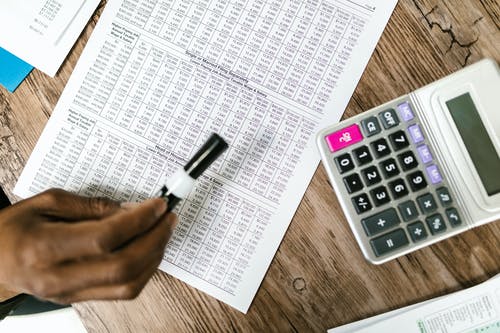Landlords have until midnight on January 31 to file their tax returns for the preceding fiscal year. If you have not filed yours yet, or if you are unsure if you should, this guide will tell you all you need to know about the landlord tax returns.
Is it necessary for you to file a landlord tax return?
If you have received a notification from HMRC, you must complete a self-assessment return even if you do not owe any tax. Unless you are notified otherwise, the deadline is 31 January if the notice was received before 5 October. If you received the warning after October 5, HMRC is likely to have given you a later deadline, so disregard January 31 and stick to the new date. In some limited circumstances, such as having all income taxed under PAYE, taxpayers can ask HMRC to withdraw the notice, leaving them with no additional liability.
A brief note: if you have not filed yet, don’t bother with a paper return; you have already missed the deadline. Paper tax returns should have been filed by October 31st, therefore filing your tax return online is now the quickest and only option.
What is the process for obtaining a Unique Taxpayer Reference (UTR)?
To file your tax return, you will need a Unique Taxpayer Reference (UTR). HMRC uses this ten-digit identifier to identify you and maintain track of your tax history. It’s also how you use your Government Gateway account to access HMRC’s online tax services.
You may apply for a UTR on GOV.UK if you have never done so before. Because the application procedure takes ten working days, the deadline for the current tax year is January 18th. If you need to file a return, however, you should do so as soon as feasible. If you have misplaced or forgotten yours, GOV.UK offers a service that may be of assistance. You can also discover it on any HMRC letters.
What is the tax treatment of rental income?
Landlord tax returns are not nearly as hard as they appear. If your rental revenue exceeds your costs (resulting in a profit), you must report it so that you may be taxed on it. Profit from your properties will be added to any other income you generate that year, and the total will decide whether you pay 20% (basic rate) or 40% (upper rate) in taxes. The first £1,000 of rental income is tax-free, and only the first £2,500 of rental income must be declared.
If being a landlord is your primary source of income, you must pay National Insurance (NI). Moreover, if you own and rent many properties, this is tough to deny. So, if you just rent out one home, the profit is not subject to NI, however you can make voluntary payments if you like.
What costs may you claim?
On its website, HMRC gives a comprehensive list of permitted costs for landlords. Here is a basic brief summary:
- Bad Debts
- The property’s ground rent
- Interest on credit cards and loans
- Services like cleaning or gardening
- The property’s repairs and replacements
- Council tax and utility bills (while the property is unoccupied)
- Phone calls, travel, and keeping a home office business expenses
- Buildings, contents, and rent guarantee are all covered by insurance
- Professional fees, such as those charged by accountants, letting agents, solicitors, or surveyors
How do you keep track of your payments?
Even for tax accountants, tax may be perplexing. Logging into your HMRC account to check on your payments is always a smart idea. If you have any issues, you may also contact them. Keeping track of what you owe and what you’ve already paid will help you prevent unpleasant surprises and avoid overspending.
